- Share full article

AI Travelbooks Cover

Shoddy guidebooks, promoted with deceptive reviews, have flooded Amazon in recent months.
Their authors claim to be renowned travel writers. But do they even exist? Or are they A.I. inventions?
And how widespread is the problem?
Supported by
A New Frontier for Travel Scammers: A.I.-Generated Guidebooks
By Seth Kugel and Stephen Hiltner
In March, as she planned for an upcoming trip to France, Amy Kolsky, an experienced international traveler who lives in Bucks County, Pa., visited Amazon.com and typed in a few search terms: travel , guidebook , France . Titles from a handful of trusted brands appeared near the top of the page: Rick Steves, Fodor’s, Lonely Planet. Also among the top search results was the highly rated “France Travel Guide,” by Mike Steves, who, according to an Amazon author page, is a renowned travel writer.
“I was immediately drawn by all the amazing reviews,” said Ms. Kolsky, 53, referring to what she saw at that time: universal raves and more than 100 five-star ratings. The guide promised itineraries and recommendations from locals. Its price tag — $16.99, compared with $25.49 for Rick Steves’s book on France — also caught Ms. Kolsky’s attention. She quickly ordered a paperback copy, printed by Amazon’s on-demand service.
When it arrived, Ms. Kolsky was disappointed by its vague descriptions, repetitive text and lack of itineraries. “It seemed like the guy just went on the internet, copied a whole bunch of information from Wikipedia and just pasted it in,” she said. She returned it and left a scathing one-star review.
Though she didn’t know it at the time, Ms. Kolsky had fallen victim to a new form of travel scam: shoddy guidebooks that appear to be compiled with the help of generative artificial intelligence , self-published and bolstered by sham reviews, that have proliferated in recent months on Amazon.
The books are the result of a swirling mix of modern tools: A.I. apps that can produce text and fake portraits ; websites with a seemingly endless array of stock photos and graphics; self-publishing platforms — like Amazon’s Kindle Direct Publishing — with few guardrails against the use of A.I.; and the ability to solicit, purchase and post phony online reviews, which runs counter to Amazon’s policies and may soon face increased regulation from the Federal Trade Commission .
The use of these tools in tandem has allowed the books to rise near the top of Amazon search results and sometimes garner Amazon endorsements such as “#1 Travel Guide on Alaska.”
A recent Amazon search for the phrase “Paris Travel Guide 2023,” for example, yielded dozens of guides with that exact title. One, whose author is listed as Stuart Hartley, boasts, ungrammatically, that it is “Everything you Need to Know Before Plan a Trip to Paris.” The book itself has no further information about the author or publisher. It also has no photographs or maps, though many of its competitors have art and photography easily traceable to stock-photo sites. More than 10 other guidebooks attributed to Stuart Hartley have appeared on Amazon in recent months that rely on the same cookie-cutter design and use similar promotional language.
The Times also found similar books on a much broader range of topics, including cooking, programming, gardening, business, crafts, medicine, religion and mathematics, as well as self-help books and novels, among many other categories.
Amazon declined to answer a series of detailed questions about the books. In a statement provided by email, Lindsay Hamilton, a spokeswoman for the company, said that Amazon is constantly evaluating emerging technologies. “All publishers in the store must adhere to our content guidelines ,” she wrote. “We invest significant time and resources to ensure our guidelines are followed and remove books that do not adhere to these guidelines.”
AI Travelbooks

This is the Amazon listing for the guidebook purchased by Ms. Kolsky. At first glance, it seems legitimate.
But things start to look dubious on the “About the Author” page.
The Times was unable to locate any of Mike Steves’s previously published work. Nor could any records be found of his home or family in Edmonds, Wash. — which happens to be the home of the acclaimed travel writer Rick Steves.
Mike Steves’s author photo shows anomalies consistent with its having been created by A.I., including …
… unnatural elements on or near the ears (in this case, a partially formed earring) …
… distorted clothing …
… and a blurry and abstract background.
The distribution of the book’s reviews also raises suspicions: All are either five-star reviews — possibly purchased, solicited or written by phony accounts — or one-star reviews.
The positive reviews are generic, off-topic or nonsensical.
They contrast starkly with the one-star reviews …
… which often point to misleading claims in the book’s description: “There is no itinerary included,” Ms. Kolsky wrote.
The Times ran 35 passages from the Mike Steves book through an artificial intelligence detector from Originality.ai . The detector works by analyzing millions of records known to be created by A.I. and millions created by humans, and learning to recognize the differences between the two, explained Jonathan Gillham, the company’s founder.
The detector assigns a score of between 0 and 100, based on the percentage chance its machine-learning model believes the content was A.I.-generated. All 35 passages scored a perfect 100, meaning they were almost certainly produced by A.I.
The company claims that the version of its detector used by The Times catches more than 99 percent of A.I. passages and mistakes human text for A.I. on just under 1.6 percent of tests.
The Times identified and tested 64 other comparably formatted guidebooks, most with at least 50 reviews on Amazon, and the results were strikingly similar. Of 190 paragraphs tested with Originality.ai, 166 scored 100, and only 12 scored under 75. By comparison, the scores for passages from well-known travel brands like Rick Steves, Fodor’s, Frommer’s and Lonely Planet were nearly all under 10, meaning there was next to no chance that they were written by A.I. generators.
Amazon, A.I. and trusted travel brands
Although the rise of crowdsourcing on sites like Tripadvisor and Yelp, not to mention free online travel sites and blogs and tips from TikTok and Instagram influencers, has reduced the demand for print guidebooks and their e-book versions, they are still big sellers. On a recent day in July, nine of the top 50 travel books on Amazon — a category that includes fiction, nonfiction, memoirs and maps — were European guidebooks from Rick Steves.
Mr. Steves, reached in Stockholm around midnight after a day of researching his series’s Scandinavia guide, said he had not heard of the Mike Steves book and did not appear concerned that generative A.I. posed a threat.
“I just cannot imagine not doing it by wearing out shoes,” said Mr. Steves, who had just visited a Viking-themed restaurant and a medieval-themed competitor, and determined that the Viking one was far superior. “You’ve got to be over here talking to people and walking.”
Mr. Steves spends about 50 days a year on the road in Europe, he said, and members of his team spend another 300 to update their approximately 20 guidebooks, as well as smaller spinoffs.
But Pauline Frommer, the editorial director of the Frommer’s guidebook series and the author of a popular New York guidebook, is worried that “little bites” from the faux guidebooks are affecting their sales. Ms. Frommer said she spends three months a year testing restaurants and working on other annual updates for the book — and gaining weight she is currently trying to work off.
“And to think that some entity thinks they can just sweep the internet and put random crap down is incredibly disheartening,” she said.
Amazon has no rules forbidding content generated primarily by artificial intelligence, but the site does offer guidelines for book content , including titles, cover art and descriptions: “Books for sale on Amazon should provide a positive customer experience. We do not allow descriptive content meant to mislead customers or that doesn’t accurately represent the content of the book. We also do not allow content that’s typically disappointing to customers.”
Mr. Gillham, the founder of Originality.ai, which is based in Ontario, said his clients are largely content producers seeking to suss out contributions that are written by artificial intelligence. “In a world of A.I.-generated content,” he said, “the traceability from author to work is going to be an increasing need.”
Finding the real authors of these guidebooks can be impossible. There is no trace of the “renowned travel writer” Mike Steves, for example, having published “articles in various travel magazines and websites,” as the biography on Amazon claims. In fact, The Times could find no record of any such writer’s existence, despite conducting an extensive public records search. (Both the author photo and the biography for Mike Steves were very likely generated by A.I., The Times found.)
Mr. Gillham stressed the importance of accountability. Buying a disappointing guidebook is a waste of money, he said. But buying a guidebook that encourages readers to travel to unsafe places — “that’s dangerous and problematic,” he said.
The Times found several instances where troubling omissions and outdated information might lead travelers astray. A guidebook on Moscow published in July under the name Rebecca R. Lim — “a respected figure in the travel industry” whose Amazon author photo also appears on a website called Todo Sobre el Acido Hialurónico (“All About Hyaluronic Acid”) alongside the name Ana Burguillos — makes no mention of Russia’s ongoing war with Ukraine and includes no up-to-date safety information. (The U.S. Department of State advises Americans not to travel to Russia .) And a guidebook on Lviv, Ukraine, published in May, also fails to mention the war and encourages readers to “pack your bags and get ready for an unforgettable adventure in one of Eastern Europe’s most captivating destinations.”
Sham reviews
Amazon has an anti-manipulation policy for customer reviews, though a careful examination by The Times found that many of the five-star reviews left on the shoddy guidebooks were either extremely general or nonsensical. The browser extension Fakespot , which detects what it considers “deceptive” reviews and gives each product a grade from A to F, gave many of the guidebooks a score of D or F.
Some reviews are curiously inaccurate. “This guide has been spectacular,” wrote a user named Muñeca about Mike Steves’s France guide. “Being able to choose the season to know what climate we like best, knowing that their language is English.” (The guide barely mentions the weather and clearly states that the language of France is French.)
Most of the questionably written rave reviews for the threadbare guides are from “verified purchases,” though Amazon’s definition of a “verified purchase” can include readers who downloaded the book for free.
“These reviews are making people dupes,” said Ms. Frommer. “It’s what makes people waste their money and keeps them away from real travel guides.”
Ms. Hamilton, the Amazon spokeswoman, wrote that the company has no tolerance for fake reviews. “We have clear policies that prohibit reviews abuse. We suspend, ban, and take legal action against those who violate these policies and remove inauthentic reviews.” Amazon would not say whether any specific action has been taken against the producers of the Mike Steves book and other similar books. During the reporting of this article, some of the suspicious reviews were removed from many of the books The Times examined, and a few books were taken down. Amazon said it blocked more than 200 million suspected fake reviews in 2022.
But even when Amazon does remove reviews, it can leave five-star ratings with no text. As of Aug. 3, Adam Neal’s “Spain Travel Guide 2023” had 217 reviews removed by Amazon, according to a Fakespot analysis, but still garners a 4.4 star rating, in large part because 24 of 27 reviewers who omitted a written review awarded the book five stars. “I feel like my guide cannot be the same one that everyone is rating so high,” wrote a reviewer named Sarie, who gave the book one star.
Many of the books also include “editorial reviews,” seemingly without oversight from Amazon. Some are particularly audacious, like Dreamscape Voyages’ “Paris Travel Guide 2023,” which includes fake reviews from heavy hitters like Afar magazine (“Prepare to be amazed”) and Condé Nast Traveler (“Your ultimate companion to unlocking the true essence of the City of Lights”). Both publications denied reviewing the book.
‘You’ve got to be there in the field’
Artificial intelligence experts generally agree that generative A.I. can be helpful to authors if used to enhance their own knowledge. Darby Rollins, the founder of the A.I. Author, a company that helps people and businesses leverage generative A.I. to improve their work flow and grow their businesses, found the guidebooks “very basic.”
But he could imagine good guidebooks produced with the help of artificial intelligence. “A.I. is going to augment and enhance and extend what you’re already good at doing,” he said. “If you’re already a good writer and you’re already an expert on travel in Europe, then you’re bringing experiences, perspective and insights to the table. You’re going to be able to use A.I. to help organize your thoughts and to help you create things faster.”
The real Mr. Steves was less sure about the merits of using A.I. “I don’t know where A.I. is going, I just know what makes a good guidebook,” he said. “And I think you’ve got to be there in the field to write one.”
Ms. Kolsky, who was scammed by the Mike Steves book, agreed. After returning her initial purchase, she opted instead for a trusted brand.
“I ended up buying Rick Steves,” she said.
Design by Gabriel Gianordoli . Susan Beachy contributed research.
Seth Kugel is the columnist for “ Tripped Up ,” an advice column that helps readers navigate the often confusing world of travel. More about Seth Kugel
Stephen Hiltner is an editor, writer and photojournalist on the Travel desk. More about Stephen Hiltner
Open Up Your World
Considering a trip, or just some armchair traveling here are some ideas..
Italy : Spend 36 hours in Florence , seeking out its lesser-known pockets.
Southern California : Skip the freeways to explore the back roads between Los Angeles and Los Olivos , a 100-mile route that meanders through mountains, canyons and star-studded enclaves.
Mongolia : Some young people, searching for less curated travel experiences, are flocking to the open spaces of this East Asian nation .
Romania : Timisoara may be the most noteworthy city you’ve probably never heard of , offering just enough for visitors to fill two or three days.
India: A writer fulfilled a lifelong dream of visiting Darjeeling, in the Himalayan foothills , taking in the tea gardens and riding a train through the hills.
52 Places: Why do we travel? For food, culture, adventure, natural beauty? Our 2024 list has all those elements, and more .
Advertisement

Mike Steves
Follow to get new release updates, special offers (including promotional offers) and improved recommendations.
About the author
Mike Steves is a renowned book author and an expert in the field of travel and tourism management. He holds a doctorate degree in Tourism and Travel Management from the University of Nevada, Las Vegas, in the United States. His academic background has equipped him with a wealth of knowledge and expertise in the travel industry. An as author, Mike Steves has published several books on travel tourism and travel experiences. His books are well-researched, informative, and often provide practical tips and insights for travelers. His writing style is engaging and relatable, which makes his books popular among travel enthusiasts. Mike Steves’ passion for travel and culture has taken him to many parts of the world, where he has experienced and documented various cultural practices, cuisines, and traditions. Overall, Mike Steves is a respected figure in the tourism and travel industry with a wealth of knowledge and expertise to offer. His books and insights are invaluable and resources for travelers and anyone interested in the world of travel and culture.
- Amazon Newsletter
- About Amazon
- Accessibility
- Sustainability
- Press Center
- Investor Relations
- Amazon Devices
- Amazon Science
- Start Selling with Amazon
- Sell apps on Amazon
- Supply to Amazon
- Protect & Build Your Brand
- Become an Affiliate
- Become a Delivery Driver
- Start a Package Delivery Business
- Advertise Your Products
- Self-Publish with Us
- Host an Amazon Hub
- › See More Ways to Make Money
- Amazon Visa
- Amazon Store Card
- Amazon Secured Card
- Amazon Business Card
- Shop with Points
- Credit Card Marketplace
- Reload Your Balance
- Amazon Currency Converter
- Your Account
- Your Orders
- Shipping Rates & Policies
- Amazon Prime
- Returns & Replacements
- Manage Your Content and Devices
- Recalls and Product Safety Alerts
- Conditions of Use
- Privacy Notice
- Consumer Health Data Privacy Disclosure
- Your Ads Privacy Choices
A New Frontier for Travel Scammers: A.I.-Generated Guidebooks
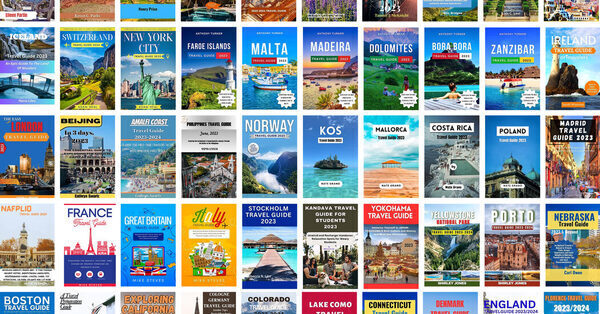
In March, as she deliberate for an upcoming journey to France, Amy Kolsky, an skilled worldwide traveler who lives in Bucks County, Pa., visited Amazon.com and typed in a couple of search phrases: journey , guidebook , France . Titles from a handful of trusted manufacturers appeared close to the highest of the web page: Rick Steves, Fodor’s, Lonely Planet. Also among the many high search outcomes was the extremely rated “France Travel Guide,” by Mike Steves, who, in response to an Amazon writer web page, is a famend journey author.
“I was immediately drawn by all the amazing reviews,” stated Ms. Kolsky, 53, referring to what she noticed at the moment: common raves and greater than 100 five-star rankings. The information promised itineraries and suggestions from locals. Its price ticket — $16.99, in contrast with $25.49 for Rick Steves’s e-book on France — additionally caught Ms. Kolsky’s consideration. She rapidly ordered a paperback copy, printed by Amazon’s on-demand service.
When it arrived, Ms. Kolsky was disenchanted by its obscure descriptions, repetitive textual content and lack of itineraries. “It seemed like the guy just went on the internet, copied a whole bunch of information from Wikipedia and just pasted it in,” she stated. She returned it and left a scathing one-star overview.
Though she didn’t realize it on the time, Ms. Kolsky had fallen sufferer to a brand new type of journey rip-off: shoddy guidebooks that look like compiled with the assistance of generative synthetic intelligence, self-published and bolstered by sham critiques, which have proliferated in latest months on Amazon.
The books are the results of a swirling combine of contemporary instruments: A.I. apps that may produce textual content and pretend portraits; web sites with a seemingly countless array of inventory photographs and graphics; self-publishing platforms — like Amazon’s Kindle Direct Publishing — with few guardrails in opposition to using A.I.; and the flexibility to solicit, buy and put up phony on-line critiques, which runs counter to Amazon’s insurance policies and should quickly face elevated regulation from the Federal Trade Commission.
The use of those instruments in tandem has allowed the books to rise close to the highest of Amazon search outcomes and typically garner Amazon endorsements akin to “#1 Travel Guide on Alaska.”
A latest Amazon seek for the phrase “Paris Travel Guide 2023,” for instance, yielded dozens of guides with that precise title. One, whose writer is listed as Stuart Hartley, boasts, ungrammatically, that it’s “Everything you Need to Know Before Plan a Trip to Paris.” The e-book itself has no additional details about the writer or writer. It additionally has no pictures or maps, although a lot of its opponents have artwork and pictures simply traceable to stock-photo websites. More than 10 different guidebooks attributed to Stuart Hartley have appeared on Amazon in latest months that depend on the identical cookie-cutter design and use related promotional language.
The Times additionally discovered related books on a much wider vary of subjects, together with cooking, programming, gardening, enterprise, crafts, drugs, faith and arithmetic, in addition to self-help books and novels, amongst many different classes.
Amazon declined to reply a sequence of detailed questions in regards to the books. In an announcement offered by electronic mail, Lindsay Hamilton, a spokeswoman for the corporate, stated that Amazon is continually evaluating rising applied sciences. “All publishers in the store must adhere to our content guidelines,” she wrote. “We invest significant time and resources to ensure our guidelines are followed and remove books that do not adhere to these guidelines.”
The Times ran 35 passages from the Mike Steves e-book by means of a man-made intelligence detector from Originality.ai. The detector works by analyzing tens of millions of information recognized to be created by A.I. and tens of millions created by people, and studying to acknowledge the variations between the 2, defined Jonathan Gillham, the corporate’s founder.
The detector assigns a rating of between 0 and 100, primarily based on the share probability its machine-learning mannequin believes the content material was A.I.-generated. All 35 passages scored an ideal 100, that means they had been virtually actually produced by A.I.
The firm claims that the model of its detector utilized by The Times catches greater than 99 p.c of A.I. passages and errors human textual content for A.I. on slightly below 1.6 p.c of checks.
The Times recognized and examined 64 different comparably formatted guidebooks, most with not less than 50 critiques on Amazon, and the outcomes had been strikingly related. Of 190 paragraphs examined with Originality.ai, 166 scored 100, and solely 12 scored below 75. By comparability, the scores for passages from well-known journey manufacturers like Rick Steves, Fodor’s, Frommer’s and Lonely Planet had been almost all below 10, that means there was subsequent to no probability that they had been written by A.I. mills.
Amazon, A.I. and trusted journey manufacturers
Although the rise of crowdsourcing on websites like Tripadvisor and Yelp, to not point out free on-line journey websites and blogs and ideas from TikTok and Instagram influencers, have lowered the demand for print guidebooks and their e-book variations, they’re nonetheless huge sellers. On a latest day in July, 9 of the highest 50 journey books on Amazon — a class that features fiction, nonfiction, memoirs and maps — had been European guidebooks from Rick Steves.
Mr. Steves, reached in Stockholm round midnight after a day of researching his sequence’s Scandinavia information, stated he had not heard of the Mike Steves e-book and didn’t seem involved that generative A.I. posed a risk.
“I just cannot imagine not doing it by wearing out shoes,” stated Mr. Steves, who had simply visited a Viking-themed restaurant and a medieval-themed competitor, and decided that the Viking one was far superior. “You’ve got to be over here talking to people and walking.”
Mr. Steves spends about 50 days a yr on the highway in Europe, he stated, and members of his group spend one other 300 to replace their roughly 20 guidebooks, in addition to smaller spinoffs.
But Pauline Frommer, the editorial director of the Frommer’s guidebook sequence and the writer of a well-liked New York guidebook, is anxious that “little bites” from the fake guidebooks are affecting their gross sales. Ms. Frommer stated she spends three months a yr testing eating places and dealing on different annual updates for the e-book — and gaining weight she is presently making an attempt to work off.
“And to think that some entity thinks they can just sweep the internet and put random crap down is incredibly disheartening,” she stated.
Amazon has no guidelines forbidding content material generated primarily by synthetic intelligence, however the web site does provide pointers for e-book content material, together with titles, cowl artwork and descriptions: “Books for sale on Amazon should provide a positive customer experience. We do not allow descriptive content meant to mislead customers or that doesn’t accurately represent the content of the book. We also do not allow content that’s typically disappointing to customers.”
Mr. Gillham, the founding father of Originality.ai, which relies in Ontario, stated his shoppers are largely content material producers searching for to suss out contributions which are written by synthetic intelligence. “In a world of A.I.-generated content,” he stated, “the traceability from author to work is going to be an increasing need.”
Finding the true authors of those guidebooks may be unimaginable. There isn’t any hint of the “renowned travel writer” Mike Steves, for instance, having revealed “articles in various travel magazines and websites,” because the biography on Amazon claims. In reality, The Times might discover no document of any such author’s existence, regardless of conducting an in depth public information search. (Both the writer photograph and the biography for Mike Steves had been very seemingly generated by A.I., The Times discovered.)
Mr. Gillham harassed the significance of accountability. Buying a disappointing guidebook is a waste of cash, he stated. But shopping for a guidebook that encourages readers to journey to unsafe locations — “that’s dangerous and problematic,” he stated.
The Times discovered a number of cases the place troubling omissions and outdated info would possibly lead vacationers astray. A guidebook on Moscow revealed in July below the identify Rebecca R. Lim — “a respected figure in the travel industry” whose Amazon writer photograph additionally seems on a web site referred to as Todo Sobre el Acido Hialurónico (“All About Hyaluronic Acid”) alongside the identify Ana Burguillos — makes no point out of Russia’s ongoing battle with Ukraine and contains no up-to-date security info. (The U.S. Department of State advises Americans to not journey to Russia.) And a guidebook on Lviv, Ukraine, revealed in May, additionally fails to say the battle and encourages readers to “pack your bags and get ready for an unforgettable adventure in one of Eastern Europe’s most captivating destinations.”
Sham critiques
Amazon has an anti-manipulation coverage for buyer critiques, although a cautious examination by The Times discovered that most of the five-star critiques left on the shoddy guidebooks had been both extraordinarily common or nonsensical. The browser extension Fakespot, which detects what it considers “deceptive” critiques and offers every product a grade from A to F, gave most of the guidebooks a rating of D or F.
Some critiques are curiously inaccurate. “This guide has been spectacular,” wrote a person named Muñeca about Mike Steves’s France information. “Being able to choose the season to know what climate we like best, knowing that their language is English.” (The information barely mentions the climate and clearly states that the language of France is French.)
Most of the questionably written rave critiques for the threadbare guides are from “verified purchases,” although Amazon’s definition of a “verified purchase” can embody readers who downloaded the e-book without cost.
“These reviews are making people dupes,” stated Ms. Frommer. “It’s what makes people waste their money and keeps them away from real travel guides.”
Ms. Hamilton, the Amazon spokeswoman, wrote that the corporate has no tolerance for faux critiques. “We have clear policies that prohibit reviews abuse. We suspend, ban, and take legal action against those who violate these policies and remove inauthentic reviews.” Amazon wouldn’t say whether or not any particular motion has been taken in opposition to the producers of the Mike Steves e-book and different related books. During the reporting of this text, a few of the suspicious critiques had been faraway from most of the books The Times examined, and some books had been taken down. Amazon stated it blocked greater than 200 million suspected faux critiques in 2022.
But even when Amazon does take away critiques, it may well go away five-star rankings with no textual content. As of Aug. 3, Adam Neal’s “Spain Travel Guide 2023” had 217 critiques eliminated by Amazon, in response to a Fakespot evaluation, however nonetheless garners a 4.4 star score, largely as a result of 24 of 27 reviewers who omitted a written overview awarded the e-book 5 stars. “I feel like my guide cannot be the same one that everyone is rating so high,” wrote a reviewer named Sarie, who gave the e-book one star.
Many of the books additionally embody “editorial reviews,” seemingly with out oversight from Amazon. Some are significantly audacious, like Dreamscape Voyages’ “Paris Travel Guide 2023,” which incorporates faux critiques from heavy hitters like Afar journal (“Prepare to be amazed”) and Condé Nast Traveler (“Your ultimate companion to unlocking the true essence of the City of Lights”). Both publications denied reviewing the e-book.
‘You’ve acquired to be there within the subject’
Artificial intelligence consultants typically agree that generative A.I. may be useful to authors if used to reinforce their very own data. Darby Rollins, the founding father of the A.I. Author, an organization that helps folks and companies leverage generative A.I. to enhance their work stream and develop their companies, discovered the guidebooks “very basic.”
But he might think about good guidebooks produced with the assistance of synthetic intelligence. “A.I. is going to augment and enhance and extend what you’re already good at doing,” he stated. “If you’re already a good writer and you’re already an expert on travel in Europe, then you’re bringing experiences, perspective and insights to the table. You’re going to be able to use A.I. to help organize your thoughts and to help you create things faster.”
The actual Mr. Steves was much less certain in regards to the deserves of utilizing A.I. “I don’t know where A.I. is going, I just know what makes a good guidebook,” he stated. “And I think you’ve got to be there in the field to write one.”
Ms. Kolsky, who was scammed by the Mike Steves e-book, agreed. After returning her preliminary buy, she opted as a substitute for a trusted model.
“I ended up buying Rick Steves,” she stated.
Design by Gabriel Gianordoli . Susan Beachy contributed analysis.
Source: www.nytimes.com


Are Scammers Using AI to Sell Bad Travel Guides on Amazon?
W ith the rise of print-on-demand technology, it’s become easier to print and sell books. For a number of authors and independent publishers, this has been hugely beneficial, allowing a wider range of work to reach a potentially wider audience. But there’s a downside to this — with the rise of AI technology , it’s led to a lot of AI-generated books rising on the sales charts on Amazon .
A recent report in the New York Times suggests that this new technology is also being used by scammers to create realistic-sounding travel guidebooks that are not particularly useful — and may be credited to nonexistent writers.
Have bookish scams reached a new market? As Seth Kugel and Stephen Hiltner report , Amazon listings have begun featuring a number of highly-rated books by legitimate-sounding writers that don’t hold up to much scrutiny.
The article cites one book in particular, titled France Travel Guide and ostensibly written by one Mike Steves, whose biography sounds uncannily similar to that of beloved travel writer Rick Steves — and whose author photo appears to have been generated using AI.
Was the book useful? One buyer offered the Times a candid review: “It seemed like the guy just went on the internet, copied a whole bunch of information from Wikipedia and just pasted it in.”
Travel Host Rick Steves Has a New Favorite Activity for Staying in Shape
The 66-year-old has been at it for 40 years, with no signs of slowing down
Systems can be gamed, and — unfortunately — AI text generation makes it a lot easier for scammers to create countless generic books in a short span of time and sell them to unwary buyers.
There are plenty of worthwhile travel guides out there — but if this recent investigation proves anything, it’s a testament to the importance of doing some research before you buy. Or, you know, visiting the travel section of your local bookstore and actually flipping through a few books to get a sense of what to expect from a given travel guide.
More Like This
Thanks for reading InsideHook . Sign up for our daily newsletter and be in the know.
The post Are Scammers Using AI to Sell Bad Travel Guides on Amazon? appeared first on InsideHook .


Prada’s Newsletter

Fake Travel Guide: Scam Guidebooks by AI

Bali Indonesia 11.57pm / Paris 5.55pm
In March, as she planned for an upcoming trip to France, Amy Kolsky, an experienced international traveler who lives in Bucks County, Pa., visited Amazon.com and typed in a few search terms: travel , guidebook , France . Titles from a handful of trusted brands appeared near the top of the page: Rick Steves, Fodor’s, Lonely Planet. Also among the top search results was the highly rated “France Travel Guide,” by Mike Steves, who, according to an Amazon author page, is a renowned travel writer.

“I was immediately drawn by all the amazing reviews,” said Ms. Kolsky, 53, referring to what she saw at that time: universal raves and more than 100 five-star ratings. The guide promised itineraries and recommendations from locals. Its price tag — $16.99, compared with $25.49 for Rick Steves’s book on France — also caught Ms. Kolsky’s attention. She quickly ordered a paperback copy, printed by Amazon’s on-demand service.
https://prada.substack.com/p/grey-area-in-our-privacy-rights
When it arrived, Ms. Kolsky was disappointed by its vague descriptions, repetitive text and lack of itineraries. “It seemed like the guy just went on the internet, copied a whole bunch of information from Wikipedia and just pasted it in,” she said. She returned it and left a scathing one-star review.
Though she didn’t know it at the time, Ms. Kolsky had fallen victim to a new form of travel scam: shoddy guidebooks that appear to be compiled with the help of generative artificial intelligence, self-published and bolstered by sham reviews, that have proliferated in recent months on Amazon.
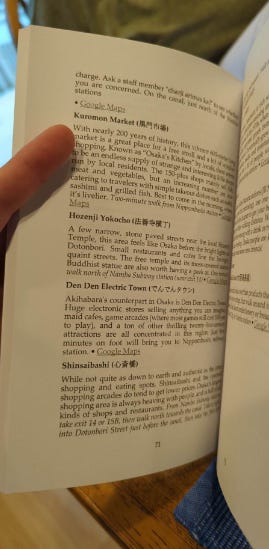
The books are the result of a swirling mix of modern tools: A.I. apps that can produce text and fake portraits; websites with a seemingly endless array of stock photos and graphics; self-publishing platforms — like Amazon’s Kindle Direct Publishing — with few guardrails against the use of A.I.; and the ability to solicit, purchase and post phony online reviews, which runs counter to Amazon’s policies and may soon face increased regulation from the Federal Trade Commission.
The use of these tools in tandem has allowed the books to rise near the top of Amazon search results and sometimes garner Amazon endorsements such as “#1 Travel Guide on Alaska.”
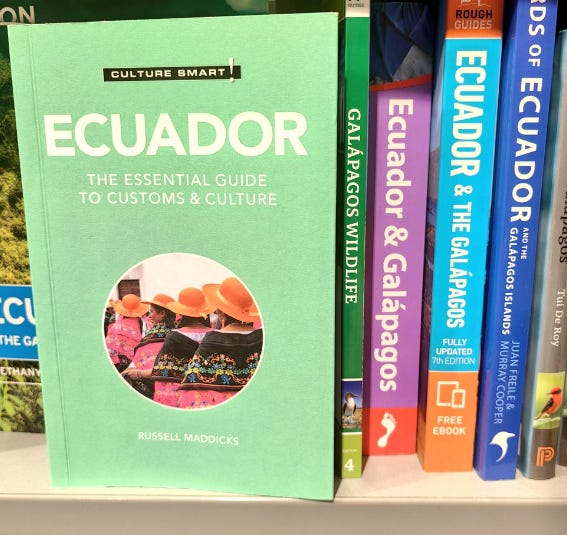
A recent Amazon search for the phrase “Paris Travel Guide 2023,” for example, yielded dozens of guides with that exact title. One, whose author is listed as Stuart Hartley, boasts, ungrammatically, that it is “Everything you Need to Know Before Plan a Trip to Paris.” The book itself has no further information about the author or publisher. It also has no photographs or maps, though many of its competitors have art and photography easily traceable to stock-photo sites. More than 10 other guidebooks attributed to Stuart Hartley have appeared on Amazon in recent months that rely on the same cookie-cutter design and use similar promotional language.
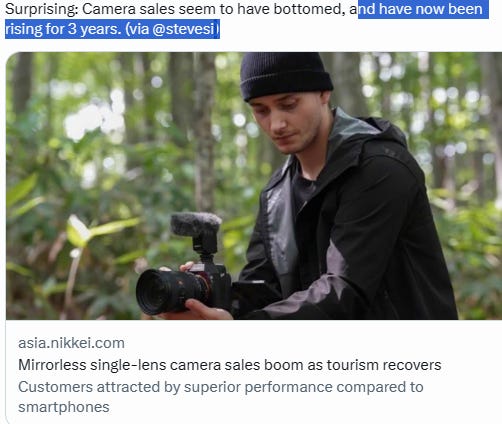
Similar books on a much broader range of topics, including cooking, programming, gardening, business, crafts, medicine, religion and mathematics, as well as self-help books and novels, among many other categories.
Amazon is constantly evaluating emerging technologies. “All publishers in the store must adhere to our content guidelines,” she wrote. “We invest significant time and resources to ensure our guidelines are followed and remove books that do not adhere to these guidelines.”
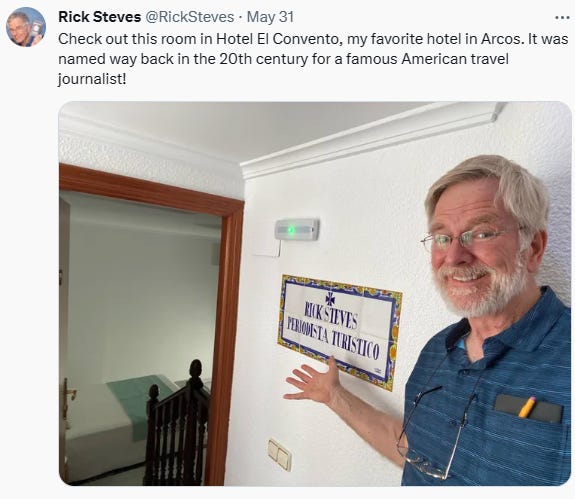
Rick Steves is prominent, respected author. Mike Steves is fake-scam, “thanks” to AI.
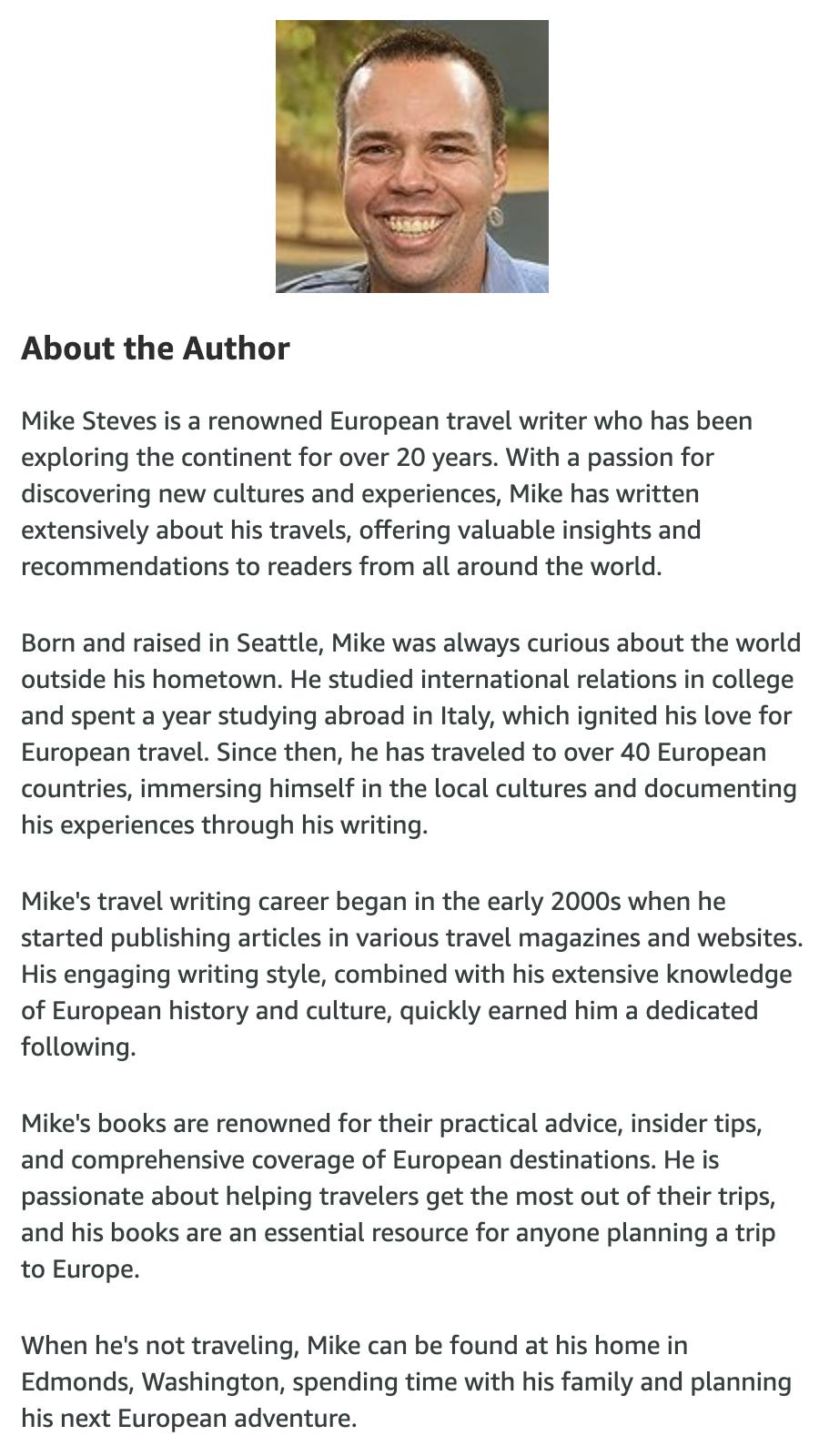
MIKE STEVES is AI, not human
This is the Amazon listing for the guidebook purchased by Ms. Kolsky. At first glance, it seems legitimate. But things start to look dubious on the “About the Author” page. Nor could any records be found of his home or family in Edmonds, Wash. — which happens to be the home of the acclaimed travel writer Rick Steves. Mike Steves’s author photo shows anomalies consistent with its having been created by A.I., including:
… unnatural elements on or near the ears (in this case, a partially formed earring)
… distorted clothing
… and a blurry and abstract background.
The distribution of the book’s reviews also raises suspicions: All are either five-star reviews — possibly purchased, solicited or written by phony accounts — or one-star reviews.
The positive reviews are generic, off-topic or nonsensical.
The detector works by analyzing millions of records known to be created by A.I. and millions created by humans, and learning to recognize the differences between the two, explained Jonathan Gillham, the company’s founder.
The detector assigns a score of between 0 and 100, based on the percentage chance its machine-learning model believes the content was A.I.-generated. All 35 passages scored a perfect 100, meaning they were almost certainly produced by A.I.
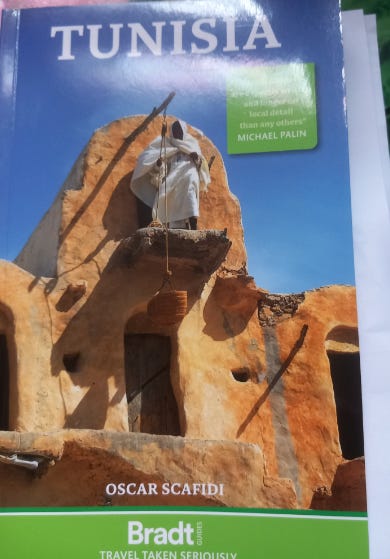
The company claims that the version of its detector used by The Times catches more than 99 percent of A.I. passages and mistakes human text for A.I. on just under 1.6 percent of tests.
Identified and tested 64 other comparably formatted guidebooks, most with at least 50 reviews on Amazon, and the results were strikingly similar. Of 190 paragraphs tested with Originality.ai, 166 scored 100, and only 12 scored under 75. By comparison, the scores for passages from well-known travel brands like Rick Steves, Fodor’s, Frommer’s and Lonely Planet were nearly all under 10, meaning there was next to no chance that they were written by A.I. generators.
Amazon, A.I. and trusted travel brands
Although the rise of crowdsourcing on sites like Tripadvisor and Yelp, not to mention free online travel sites and blogs and tips from TikTok and Instagram influencers, has reduced the demand for print guidebooks and their e-book versions, they are still big sellers. On a recent day in July, nine of the top 50 travel books on Amazon — a category that includes fiction, nonfiction, memoirs and maps — were European guidebooks from Rick Steves.
Mr. Steves, reached in Stockholm around midnight after a day of researching his series’s Scandinavia guide, said he had not heard of the Mike Steves book and did not appear concerned that generative A.I. posed a threat.
“I just cannot imagine not doing it by wearing out shoes,” said Mr. Steves, who had just visited a Viking-themed restaurant and a medieval-themed competitor, and determined that the Viking one was far superior. “You’ve got to be over here talking to people and walking.”
Mr. Steves spends about 50 days a year on the road in Europe, he said, and members of his team spend another 300 to update their approximately 20 guidebooks, as well as smaller spinoffs.
But Pauline Frommer, the editorial director of the Frommer’s guidebook series and the author of a popular New York guidebook, is worried that “little bites” from the faux guidebooks are affecting their sales. Ms. Frommer said she spends three months a year testing restaurants and working on other annual updates for the book — and gaining weight she is currently trying to work off.
“And to think that some entity thinks they can just sweep the internet and put random crap down is incredibly disheartening,” she said.
Amazon has no rules forbidding content generated primarily by artificial intelligence, but the site does offer guidelines for book content, including titles, cover art and descriptions: “Books for sale on Amazon should provide a positive customer experience. We do not allow descriptive content meant to mislead customers or that doesn’t accurately represent the content of the book. We also do not allow content that’s typically disappointing to customers.”
Mr. Gillham, the founder of Originality.ai, which is based in Ontario, said his clients are largely content producers seeking to suss out contributions that are written by artificial intelligence. “In a world of A.I.-generated content,” he said, “the traceability from author to work is going to be an increasing need.”
Finding the real authors of these guidebooks can be impossible. There is no trace of the “renowned travel writer” Mike Steves, for example, having published “articles in various travel magazines and websites,” as the biography on Amazon claims. In fact, The Times could find no record of any such writer’s existence, despite conducting an extensive public records search. (Both the author photo and the biography for Mike Steves were very likely generated by A.I., The Times found.)
Mr. Gillham stressed the importance of accountability. Buying a disappointing guidebook is a waste of money, he said. But buying a guidebook that encourages readers to travel to unsafe places — “that’s dangerous and problematic,” he said.
The Times found several instances where troubling omissions and outdated information might lead travelers astray. A guidebook on Moscow published in July under the name Rebecca R. Lim — “a respected figure in the travel industry” whose Amazon author photo also appears on a website called Todo Sobre el Acido Hialurónico (“All About Hyaluronic Acid”) alongside the name Ana Burguillos — makes no mention of Russia’s ongoing war with Ukraine and includes no up-to-date safety information. (The U.S. Department of State advises Americans not to travel to Russia.) And a guidebook on Lviv, Ukraine, published in May, also fails to mention the war and encourages readers to “pack your bags and get ready for an unforgettable adventure in one of Eastern Europe’s most captivating destinations.”
Sham reviews
Amazon has an anti-manipulation policy for customer reviews, though a careful examination by The Times found that many of the five-star reviews left on the shoddy guidebooks were either extremely general or nonsensical. The browser extension Fakespot, which detects what it considers “deceptive” reviews and gives each product a grade from A to F, gave many of the guidebooks a score of D or F.
Some reviews are curiously inaccurate. “This guide has been spectacular,” wrote a user named Muñeca about Mike Steves’s France guide. “Being able to choose the season to know what climate we like best, knowing that their language is English.” (The guide barely mentions the weather and clearly states that the language of France is French.)
Most of the questionably written rave reviews for the threadbare guides are from “verified purchases,” though Amazon’s definition of a “verified purchase” can include readers who downloaded the book for free.
“These reviews are making people dupes,” said Ms. Frommer. “It’s what makes people waste their money and keeps them away from real travel guides.”
Ms. Hamilton, the Amazon spokeswoman, wrote that the company has no tolerance for fake reviews. “We have clear policies that prohibit reviews abuse. We suspend, ban, and take legal action against those who violate these policies and remove inauthentic reviews.” Amazon would not say whether any specific action has been taken against the producers of the Mike Steves book and other similar books. During the reporting of this article, some of the suspicious reviews were removed from many of the books examined, and a few books were taken down. Amazon said it blocked more than 200 million suspected fake reviews in 2022.
But even when Amazon does remove reviews, it can leave five-star ratings with no text. As of Aug. 3, Adam Neal’s “Spain Travel Guide 2023” had 217 reviews removed by Amazon, according to a Fakespot analysis, but still garners a 4.4 star rating, in large part because 24 of 27 reviewers who omitted a written review awarded the book five stars. “I feel like my guide cannot be the same one that everyone is rating so high,” wrote a reviewer named Sarie, who gave the book one star.
Many of the books also include “editorial reviews,” seemingly without oversight from Amazon. Some are particularly audacious, like Dreamscape Voyages’ “Paris Travel Guide 2023,” which includes fake reviews from heavy hitters like Afar magazine (“Prepare to be amazed”) and Condé Nast Traveler (“Your ultimate companion to unlocking the true essence of the City of Lights”). Both publications denied reviewing the book.
‘You’ve got to be there in the field’
Artificial intelligence experts generally agree that generative A.I. can be helpful to authors if used to enhance their own knowledge. Darby Rollins, the founder of the A.I. Author, a company that helps people and businesses leverage generative A.I. to improve their work flow and grow their businesses, found the guidebooks “very basic.”
But he could imagine good guidebooks produced with the help of artificial intelligence. “A.I. is going to augment and enhance and extend what you’re already good at doing,” he said. “If you’re already a good writer and you’re already an expert on travel in Europe, then you’re bringing experiences, perspective and insights to the table. You’re going to be able to use A.I. to help organize your thoughts and to help you create things faster.”
The real Mr. Steves was less sure about the merits of using A.I. “I don’t know where A.I. is going, I just know what makes a good guidebook,” he said. “And I think you’ve got to be there in the field to write one.”
Ms. Kolsky, who was scammed by the Mike Steves book, agreed. After returning her initial purchase, she opted instead for a trusted brand.
“I ended up buying Rick Steves,” she said.
=========END————
Thank you, as always, for reading. If you have anything like a spark file, or master thought list (spark file sounds so much cooler), let me know how you use it in the comments below.
If you enjoyed this post, please share it.
Start writing today. Use the button below to create your Substack and connect your publication with Prada’s Newsletter
Start a Substack
If a friend sent this to you, you could subscribe here 👇. All content is free, and paid subscriptions are voluntary.
Leave a comment
———————————————————————————
-prada- Adi Mulia Pradana is a Helper. Former adviser (President Indonesia) Jokowi for mapping 2-times election. I used to get paid to catch all these blunders—now I do it for free. Trying to work out what's going on, what happens next. Arch enemies of the tobacco industry, (still) survive after getting doxed. Now figure out, or, prevent catastrophic situations in the Indonesian administration from outside the government. After his mom was nearly killed by a syndicate, now I do it (catch all these blunders, especially blunders by an asshole syndicates) for free. Writer actually facing 12 years attack-simultaneously (physically terror, cyberattack terror) by his (ex) friend in IR UGM / HI UGM (all of them actually indebted to me, at least get a very cheap book). 2 times, my mom nearly got assassinated by my friend with “komplotan” / weird syndicate. Once assassin, forever is assassin , that I was facing in years. I push myself to be (keep) dovish, pacifist, and you can read my pacifist tone in every note I write. A framing that myself propagated for years.

(Very rare compliment and initiative pledge. Thank you. Yes, even a lot of people associated me PRAVDA, not part of MIUCCIA PRADA. I’m literally asshole on debate, since in college). Especially after heated between Putin and Prigozhin. My note-live blog about Russia - Ukraine already click-read 4 millions.
Thanks for reading Prada’s Newsletter. I was lured, inspired by someone writer, his post in LinkedIn months ago, “Currently after a routine daily writing newsletter in the last 10 years, my subscriber reaches 100,000. Maybe one of my subscribers is your boss.” After I get followed / subscribed by (literally) prominent AI and prominent Chief Product and Technology of mammoth global media (both: Sir, thank you so much), I try crafting more / better writing. To get the ones who really appreciate your writing, and now prominent people appreciate my writing, priceless feeling. Prada ungated/no paywall every notes-but thank you for anyone open initiative pledge to me.

(Promoting to more engage in Substack ) Seamless to listen to your favorite podcasts on Substack. You can buy a better headset to listen to a podcast here (GST DE352306207) .

LIEBLINGSPRODUKTE click here
Listeners on Apple Podcasts , Spotify , Overcast, or Pocket Casts simultaneously. podcasting can transform more of a conversation . Invite listeners to weigh in on episodes directly with you and with each other through discussion threads. At Substack, the process is to build with writers. Podcasts are an amazing feature of the Substack. I wish it had a feature to read the words we have written down without us having to do the speaking. Thanks for reading Prada’s Newsletter.

Wants comfy jogging pants / jogginghose amid scorching summer or (one day) harsh winter like black jogginghose or khaki/beige jogginghose like this? click
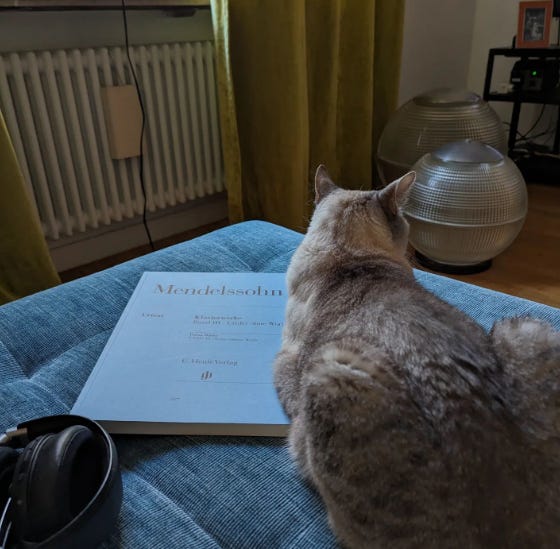
Headset and Mic can buy in here , but not including this cat, laptop, and couch / sofa.
Ready for more?

Getting to know traveling extraordinaire Rick Steves

Ahead of his conversation at the World Affairs Council of Charlotte on Feb. 15 , world traveler Rick Steves sits down with "Charlotte Talks."
You know him as America’s most respected authority on European travel and his frequent appearances on PBS. He’s on a mission to empower Americans to take European trips that are fun, culturally broadening and — most importantly — affordable.
In 1976, he started his business, Rick Steves' Europe, headquartered in Edmonds, Washington. He's done it all, from writing a best-selling guidebook series to hosting a popular public television show and a weekly public radio show . He also runs a small-group tour program taking 30,000 travelers to Europe annually.
We’ll talk about how the coronavirus pandemic changed traveling, his tips for avid or first-time travelers, and where he sees the travel industry headed.
Rick Steves , American travel author and writer


Israel denies attacking UN observers in Lebanon

Art world descends on Hong Kong as Article 23 security laws spur censorship fears

Meta’s oversight board urges Facebook, Instagram to lift ban on ‘shaheed’

Dog Who ‘Languished’ in Shelter for 4 Years Finally Living His Best Life

A global scramble to make humanoid robots is gearing up to be the 21st century’s space race

China’s Big Banks Post Scant Profit Gains as Margins Shrink

Peru police raid president’s home looking for Rolex watches

“Royals’ Health Battles Shouldn’t Be Brought To Screen,” Says ‘The Crown’ Star Gillian Anderson


Late Capitol Police Officer’s Family Slams Trump Attending NYPD Funeral

Bridge collapse poses the first major challenge for Maryland Gov. Wes Moore, a Democratic rising star

Communing with spirits and coping with death: Grief food in three cultures

Trump complains in latest hush-money delay bid that Manhattan already thinks he’s guilty, and Michael Cohen keeps saying ‘Donald von Shitsinpants’
- Environment

TV’s New ‘Game of Thrones’ Is Set in 17th-Century Japan
How do you say “Winter is coming” in Japanese? It’s hardly a criticism to say the new series Shogun, currently airing on FX and streaming on Hulu in...
Do Not Empower the Criminals in Haiti
When i became a birder, almost everything else fell into place, the case for saying ‘i do’, the persistent threat to abortion rights, donald trump, blasphemous bible thumper, it’s easter 2050. here’s what american religion looks like..

My Manager Keeps Giving Me Dirty Looks —What Should I Do?

The cracks are deepening in the US-Israel alliance

Florida’s Ron DeSantis is passing bills all over the place after his failed presidential campaign. They have a common theme.

The Israel Defense Forces (IDF) said it did not carry out a strike on a observer vehicle in southern on Saturday....

More than 240 international galleries are participating in Art Basel this year, as it returns to full scale for the...

The oversight board of Meta, the social media giant which owns Facebook, Instagram and WhatsApp, has ruled that a ban...

After four years of waiting in an animal shelter, a 7-year-old dog who has overcome considerable hardship has finally been...

The space race, an epic showdown between the US and the Soviet Union, epitomized the quest for scientific dominance and...

(Bloomberg) — China’s largest state owned bank posted scant gains in earnings for last year as margins weakened. Net income...

authorities raided President Dina Boluarte’s home on Saturday as part of an ongoing corruption investigation into unreported luxury watches. A...

One of the stars of The Crown believes the show should not be revived, and that the health battles of...

The family of a police officer who died following the January 6 Capitol riots has blasted former President Donald Trump...

BALTIMORE — After a bridge collapse in Baltimore killed six people and shut down an international port, Maryland Gov. Wes...

US Consumer Sentiment Jumps to Highest Level Since July 2021

Rebel Wilson Accuses Sacha Baron Cohen Of “A**hole Move” After Video Shows Them Together On Set

California doctor gets life-saving lung transplant after NBC News report

Japan raids factory making health supplements linked to deaths
Copyright © 2023.
Site Navigation
- Privacy & Policy
Privacy Overview
- Cryptocurrency

Arrow Markets Secures $4M in Series A to Forge New Paths in Crypto Options Trading

‘Too few college-educated men’: A look at why many women undergo egg freezing, and the costs associated with it

1 in every 13 bridges in America is in ‘poor’ condition. Thousands could collapse from a collision
A New Frontier for Travel Scammers: A.I.-Generated Guidebooks
In March, as she planned for an upcoming trip to France, Amy Kolsky, an experienced international traveler who lives in Bucks County, Pa., visited Amazon.com and typed in a few search terms: travel , guidebook , France . Titles from a handful of trusted brands appeared near the top of the page: Rick Steves, Fodor’s, Lonely Planet. Also among the top search results was the highly rated “France Travel Guide,” by Mike Steves, who, according to an Amazon author page, is a renowned travel writer.
“I was immediately drawn by all the amazing reviews,” said Ms. Kolsky, 53, referring to what she saw at that time: universal raves and more than 100 five-star ratings. The guide promised itineraries and recommendations from locals. Its price tag — $16.99, compared with $25.49 for Rick Steves’s book on France — also caught Ms. Kolsky’s attention. She quickly ordered a paperback copy, printed by Amazon’s on-demand service.
When it arrived, Ms. Kolsky was disappointed by its vague descriptions, repetitive text and lack of itineraries. “It seemed like the guy just went on the internet, copied a whole bunch of information from Wikipedia and just pasted it in,” she said. She returned it and left a scathing one-star review.
Though she didn’t know it at the time, Ms. Kolsky had fallen victim to a new form of travel scam: shoddy guidebooks that appear to be compiled with the help of generative artificial intelligence, self-published and bolstered by sham reviews, that have proliferated in recent months on Amazon.
The books are the result of a swirling mix of modern tools: A.I. apps that can produce text and fake portraits; websites with a seemingly endless array of stock photos and graphics; self-publishing platforms — like Amazon’s Kindle Direct Publishing — with few guardrails against the use of A.I.; and the ability to solicit, purchase and post phony online reviews, which runs counter to Amazon’s policies and may soon face increased regulation from the Federal Trade Commission.
The use of these tools in tandem has allowed the books to rise near the top of Amazon search results and sometimes garner Amazon endorsements such as “#1 Travel Guide on Alaska.”
A recent Amazon search for the phrase “Paris Travel Guide 2023,” for example, yielded dozens of guides with that exact title. One, whose author is listed as Stuart Hartley, boasts, ungrammatically, that it is “Everything you Need to Know Before Plan a Trip to Paris.” The book itself has no further information about the author or publisher. It also has no photographs or maps, though many of its competitors have art and photography easily traceable to stock-photo sites. More than 10 other guidebooks attributed to Stuart Hartley have appeared on Amazon in recent months that rely on the same cookie-cutter design and use similar promotional language.
The Times also found similar books on a much broader range of topics, including cooking, programming, gardening, business, crafts, medicine, religion and mathematics, as well as self-help books and novels, among many other categories.
Amazon declined to answer a series of detailed questions about the books. In a statement provided by email, Lindsay Hamilton, a spokeswoman for the company, said that Amazon is constantly evaluating emerging technologies. “All publishers in the store must adhere to our content guidelines,” she wrote. “We invest significant time and resources to ensure our guidelines are followed and remove books that do not adhere to these guidelines.”
The Times ran 35 passages from the Mike Steves book through an artificial intelligence detector from Originality.ai. The detector works by analyzing millions of records known to be created by A.I. and millions created by humans, and learning to recognize the differences between the two, explained Jonathan Gillham, the company’s founder.
The detector assigns a score of between 0 and 100, based on the percentage chance its machine-learning model believes the content was A.I.-generated. All 35 passages scored a perfect 100, meaning they were almost certainly produced by A.I.
The company claims that the version of its detector used by The Times catches more than 99 percent of A.I. passages and mistakes human text for A.I. on just under 1.6 percent of tests.
The Times identified and tested 64 other comparably formatted guidebooks, most with at least 50 reviews on Amazon, and the results were strikingly similar. Of 190 paragraphs tested with Originality.ai, 166 scored 100, and only 12 scored under 75. By comparison, the scores for passages from well-known travel brands like Rick Steves, Fodor’s, Frommer’s and Lonely Planet were nearly all under 10, meaning there was next to no chance that they were written by A.I. generators.
Amazon, A.I. and trusted travel brands
Although the rise of crowdsourcing on sites like Tripadvisor and Yelp, not to mention free online travel sites and blogs and tips from TikTok and Instagram influencers, has reduced the demand for print guidebooks and their e-book versions, they are still big sellers. On a recent day in July, nine of the top 50 travel books on Amazon — a category that includes fiction, nonfiction, memoirs and maps — were European guidebooks from Rick Steves.
Mr. Steves, reached in Stockholm around midnight after a day of researching his series’s Scandinavia guide, said he had not heard of the Mike Steves book and did not appear concerned that generative A.I. posed a threat.
“I just cannot imagine not doing it by wearing out shoes,” said Mr. Steves, who had just visited a Viking-themed restaurant and a medieval-themed competitor, and determined that the Viking one was far superior. “You’ve got to be over here talking to people and walking.”
Mr. Steves spends about 50 days a year on the road in Europe, he said, and members of his team spend another 300 to update their approximately 20 guidebooks, as well as smaller spinoffs.
But Pauline Frommer, the editorial director of the Frommer’s guidebook series and the author of a popular New York guidebook, is worried that “little bites” from the faux guidebooks are affecting their sales. Ms. Frommer said she spends three months a year testing restaurants and working on other annual updates for the book — and gaining weight she is currently trying to work off.
“And to think that some entity thinks they can just sweep the internet and put random crap down is incredibly disheartening,” she said.
Amazon has no rules forbidding content generated primarily by artificial intelligence, but the site does offer guidelines for book content, including titles, cover art and descriptions: “Books for sale on Amazon should provide a positive customer experience. We do not allow descriptive content meant to mislead customers or that doesn’t accurately represent the content of the book. We also do not allow content that’s typically disappointing to customers.”
Mr. Gillham, the founder of Originality.ai, which is based in Ontario, said his clients are largely content producers seeking to suss out contributions that are written by artificial intelligence. “In a world of A.I.-generated content,” he said, “the traceability from author to work is going to be an increasing need.”
Finding the real authors of these guidebooks can be impossible. There is no trace of the “renowned travel writer” Mike Steves, for example, having published “articles in various travel magazines and websites,” as the biography on Amazon claims. In fact, The Times could find no record of any such writer’s existence, despite conducting an extensive public records search. (Both the author photo and the biography for Mike Steves were very likely generated by A.I., The Times found.)
Mr. Gillham stressed the importance of accountability. Buying a disappointing guidebook is a waste of money, he said. But buying a guidebook that encourages readers to travel to unsafe places — “that’s dangerous and problematic,” he said.
The Times found several instances where troubling omissions and outdated information might lead travelers astray. A guidebook on Moscow published in July under the name Rebecca R. Lim — “a respected figure in the travel industry” whose Amazon author photo also appears on a website called Todo Sobre el Acido Hialurónico (“All About Hyaluronic Acid”) alongside the name Ana Burguillos — makes no mention of Russia’s ongoing war with Ukraine and includes no up-to-date safety information. (The U.S. Department of State advises Americans not to travel to Russia.) And a guidebook on Lviv, Ukraine, published in May, also fails to mention the war and encourages readers to “pack your bags and get ready for an unforgettable adventure in one of Eastern Europe’s most captivating destinations.”
Sham reviews
Amazon has an anti-manipulation policy for customer reviews, though a careful examination by The Times found that many of the five-star reviews left on the shoddy guidebooks were either extremely general or nonsensical. The browser extension Fakespot, which detects what it considers “deceptive” reviews and gives each product a grade from A to F, gave many of the guidebooks a score of D or F.
Some reviews are curiously inaccurate. “This guide has been spectacular,” wrote a user named Muñeca about Mike Steves’s France guide. “Being able to choose the season to know what climate we like best, knowing that their language is English.” (The guide barely mentions the weather and clearly states that the language of France is French.)
Most of the questionably written rave reviews for the threadbare guides are from “verified purchases,” though Amazon’s definition of a “verified purchase” can include readers who downloaded the book for free.
“These reviews are making people dupes,” said Ms. Frommer. “It’s what makes people waste their money and keeps them away from real travel guides.”
Ms. Hamilton, the Amazon spokeswoman, wrote that the company has no tolerance for fake reviews. “We have clear policies that prohibit reviews abuse. We suspend, ban, and take legal action against those who violate these policies and remove inauthentic reviews.” Amazon would not say whether any specific action has been taken against the producers of the Mike Steves book and other similar books. During the reporting of this article, some of the suspicious reviews were removed from many of the books The Times examined, and a few books were taken down. Amazon said it blocked more than 200 million suspected fake reviews in 2022.
But even when Amazon does remove reviews, it can leave five-star ratings with no text. As of Aug. 3, Adam Neal’s “Spain Travel Guide 2023” had 217 reviews removed by Amazon, according to a Fakespot analysis, but still garners a 4.4 star rating, in large part because 24 of 27 reviewers who omitted a written review awarded the book five stars. “I feel like my guide cannot be the same one that everyone is rating so high,” wrote a reviewer named Sarie, who gave the book one star.
Many of the books also include “editorial reviews,” seemingly without oversight from Amazon. Some are particularly audacious, like Dreamscape Voyages’ “Paris Travel Guide 2023,” which includes fake reviews from heavy hitters like Afar magazine (“Prepare to be amazed”) and Condé Nast Traveler (“Your ultimate companion to unlocking the true essence of the City of Lights”). Both publications denied reviewing the book.
‘You’ve got to be there in the field’
Artificial intelligence experts generally agree that generative A.I. can be helpful to authors if used to enhance their own knowledge. Darby Rollins, the founder of the A.I. Author, a company that helps people and businesses leverage generative A.I. to improve their work flow and grow their businesses, found the guidebooks “very basic.”
But he could imagine good guidebooks produced with the help of artificial intelligence. “A.I. is going to augment and enhance and extend what you’re already good at doing,” he said. “If you’re already a good writer and you’re already an expert on travel in Europe, then you’re bringing experiences, perspective and insights to the table. You’re going to be able to use A.I. to help organize your thoughts and to help you create things faster.”
The real Mr. Steves was less sure about the merits of using A.I. “I don’t know where A.I. is going, I just know what makes a good guidebook,” he said. “And I think you’ve got to be there in the field to write one.”
Ms. Kolsky, who was scammed by the Mike Steves book, agreed. After returning her initial purchase, she opted instead for a trusted brand.
“I ended up buying Rick Steves,” she said.
Design by Gabriel Gianordoli . Susan Beachy contributed research.
Read the full article here
Related Posts

Speculation over M&S Ocado split persists after payment dispute

Data Protection fears raised over shopping giant Temu’s cash giveaway

Governments urged to reconsider bid to delay deforestation law

How much did Europe’s best-paid bank boss earn last year?

The Dali Is a Big Ship. But Not the Biggest.

Diageo price hike fails to bring cheer to pub landlords
Leave a reply cancel reply.
Save my name, email, and website in this browser for the next time I comment.
Type above and press Enter to search. Press Esc to cancel.
- Tour Account ›
- Travel Forum ›
- Travel Forum
- To the East
Help with Moscow
I'm looking for a reasonably-priced hotel in central Moscow...hopefully, within a 15-minute walk of Red Square. Any suggestions? Also, are there any alternatives to a $75 cab ride from the airport into the central city? Thanks.
Regarding a hotel 15 walk from Red Square, I can't help you as I have no direct knowledge. We stayed at a hotel 15 walk from a metro station and then about a 10 minute ride to Red Square. However, for getting from the airport, it depends on which one you are arriving at, but both now have rail connections to the city. Sheremetyevo has the Aeroexpress that drops you off at the Belorussky Railway Terminal, where you can change to the metro. Domodedovo also has an Aeorexpress, but it stops at Paveletsky Train Station. Both are very reasonable check out www.aeroexpress.ru for more information. Speaking from experience, however, if you have any luggage larger than a carry-on, it may be difficult to manage the metro. PM me for any more information.
If you befriend one of the locals at the Airport, have them call you a "radio taxi" on their cell-phone. It's a fraction of the price of one of the "mafi" taxi's waiting at the stands (they charge a lot more than $75). Also, can pre-book a car service to pick you at the terminal. A lot of the visa companies also provide this service. I used this one: https://www.gotorussia.net/transfers/airport_moscow.htm
This is some good information to have! We've got two full days in Moscow. Other than Red Square, the Kremlin and the subway, do you have any suggestions for the other sites that we should include on our "must see" list?
The Red Square and Kremlin will take a full day, and of course the subway you will use when getting around, so no problem seeing that! What are you interested in; Art, history, shopping, convents? Many options, give me an idea of what you are interested in and I'll throw you some back. ;-)
We've found a couple of hotels in the Red Square area that will suit our requirements (and budget). We've got one late afternoon and evening, plus two full days before taking the express train to St. Petersburg. I think our interests would primarily be in the main sites and archetecture of the city. Red Square, St. Basil Cath, GUM, the metro system, Kremlin, the old city wall. Given the two full days, what other recommendations do you have? We also thought about arranging a half-day car tour of Moscow if time permits. Any suggestions are appreciated.
GUM is cool to check out, we had lunch there at a cafeteria style restaurant which was... very Soviet... so fun! Top level on the far side. Other than that it is filled with typical Western shops, but architecturally is it interesting. The Kremlin is worth nearly a full day, get there early, check any bags (do not miss this step!) and make sure you go to the Treasury/ Diamond Room (separate entrance and ticket required). Lenin's Tomb is a must, again, go early to get a good spot in the queue. Check bags in the State History Museum next door, or at the Kremlin (see the tomb, then do the Kremlin). We enjoyed the Novodevichy Convent for its buildings, scenery, and quiet. Well worth the time to get ether by metro and walking. Also, if you are shopping for souvenirs, the Izmaylovsky Market in the park of the same name has good deals on typical Russian souvenirs. Ask or PM me if you would like more info.
This topic has been automatically closed due to a period of inactivity.

IMAGES
VIDEO
COMMENTS
Also among the top search results was the highly rated "France Travel Guide," by Mike Steves, who, according to an Amazon author page, is a renowned travel writer.
Sorry Mike but I'm sticking with Rick Steves a he has never steered me wrong when planning my trips. Our time and money is precious to go wasting it on a so called travel writer who has never actually gone to that particular place that they're writing a travel book on.
His writing style is engaging and relatable, which makes his books popular among travel enthusiasts. Mike Steves' passion for travel and culture has taken him to many parts of the world, where he has experienced and documented various cultural practices, cuisines, and traditions. Overall, Mike Steves is a respected figure in the tourism and ...
One prime example came from Mike Steves (an assumed spin on well-known travel guide writer Rick Steves), a "renowned European travel writer" who has "traveled to over 40 countries." His guide, "France Travel Guide: Discover the Beauty, Culture, and Charm of France Through an Insider's Guide," was selling for $16.99 and had a 4.4 ...
Also among the many high search outcomes was the extremely rated "France Travel Guide," by Mike Steves, who, in response to an Amazon writer web page, is a famend journey author. "I was immediately drawn by all the amazing reviews," stated Ms. Kolsky, 53, referring to what she noticed at the moment: common raves and greater than 100 ...
Also among the top search results was the highly rated "France Travel Guide," by Mike Steves, who, according to an Amazon author page, is a renowned travel writer." Amy fell for the fake 100 five-star reviews and the low price ($16.99, compared to $25.49 of a reputable publisher).
The article cites one book in particular, titled France Travel Guide and ostensibly written by one Mike Steves, whose biography sounds uncannily similar to that of beloved travel writer Rick ...
Price: $16.99. The respected travel writer Rick Steves also has a guide to France. His sells for $25.49. Perhaps because people like bargains -- as well as the surname "Steves" -- Mike Steves has ...
1 of 5 stars 2 of 5 stars 3 of 5 stars 4 of 5 stars 5 of 5 stars. AMSTERDAM TRAVEL GUIDE 2024:: "The Most Recent Comprehensive Guide in Exploring Amsterdam: A Mesmerizing Odyssey through Enchanting Canals, Cultural Marvels, and Unparalleled Adventures". by. MIKE STEVES.
Travel Host Rick Steves Has a New Favorite Activity for Staying in Shape. The 66-year-old has been at it for 40 years, with no signs of slowing down. Systems can be gamed, and — unfortunately — AI text generation makes it a lot easier for scammers to create countless generic books in a short span of time and sell them to unwary buyers.
Rick Steves is America's leading authority on European travel. Plan your own trip or take one of Rick's value-packed European tours and vacations. Everything you need is here. ... Learn about Rick Steves' small-group tours with 46 finely crafted itineraries for 2024! Shop Rick's Travel Store.
Also among the top search results was the highly rated "France Travel Guide," by Mike Steves, who, according to an Amazon author page, is a renowned travel writer. "I was immediately drawn by all the amazing reviews," said Ms. Kolsky, 53, referring to what she saw at that time: universal raves and more than 100 five-star ratings.
Rick Steves, American travel author and writer. Rick Steves. ... Sarah Delia. Sarah Delia is a Senior Producer for Charlotte Talks with Mike Collins. Sarah joined the WFAE news team in 2014. An ...
Eventually, he realized his "European Travel Cheap" classes needed a textbook. Embarking on a guerilla do-it-yourself project, Steves wrote his first book—what would become the classic cornerstone of his library—Europe Through the Back Door.He rented a typewriter, convinced his girlfriend to type the manuscript, whisked the book off to a self-publisher and picked up a load of 2,500 ...
Also among the top search results was the highly rated "France Travel Guide," by Mike Steves, who, according to an Amazon author page, is a renowned travel writer. "I was immediately drawn by all the amazing reviews," said Ms. Kolsky, 53, referring to what she saw at that time: universal raves and more than 100 five-star ratings.
Steves is coming to town on April 4, for a talk hosted by Village Books at Bellingham High School. The Edmonds-based author has a history of making the drive an hour north, dating back to his days ...
Search. Search. My account
2487 posts. Both Moscow and St Petersburg I've done on my own, that is together with the Dear Partner. I can't remember any problem getting where we wanted to go. The Metro systems are well signed, and with a little exercise and patience you can recognize the station names.
A New Frontier for Travel Scammers: A.I.-Generated Guidebooks. August 5, 2023. Jewish Students Describe Facing Antisemitism on Campus to Members of Congress. March 1, 2024. China's National Team Bought $57 Billion of Shares, UBS Says. March 1, 2024. Judge to Decide Timing of Trump Classified Documents Trial.
In March, as she planned for an upcoming trip to France, Amy Kolsky, an experienced international traveler who lives in Bucks County, Pa., visited Amazon.com and typed in a few search terms: travel, guidebook, France. Titles from a handful of trusted brands appeared near the top of the page: Rick Steves, Fodor's, Lonely Planet. Also
Travel Forum › Home / Travel Forum ... Travel Tips; Watch, Read, Listen; Travel Forum. Get Started; Community Guidelines; Shop Online; Rick Steves' Europe. ... Posted by Michael Schneider. New Paltz, NY. 03/18/11 11:43 AM. 9088 posts. If you befriend one of the locals at the Airport, have them call you a "radio taxi" on their cell-phone. It's ...
In March, as she planned for an upcoming trip to France, Amy Kolsky, an experienced international traveler who lives in Bucks County, Pa., visited Amazon.com and typed in a few search terms: travel, guidebook, France. Titles from a handful of trusted brands appeared near the top of the page: Rick Steves, Fodor's, Lonely Planet. Also […]